Santorini Beyond the Crowds: What to See and...
Discover hidden beaches, authentic tavernas, ancient...
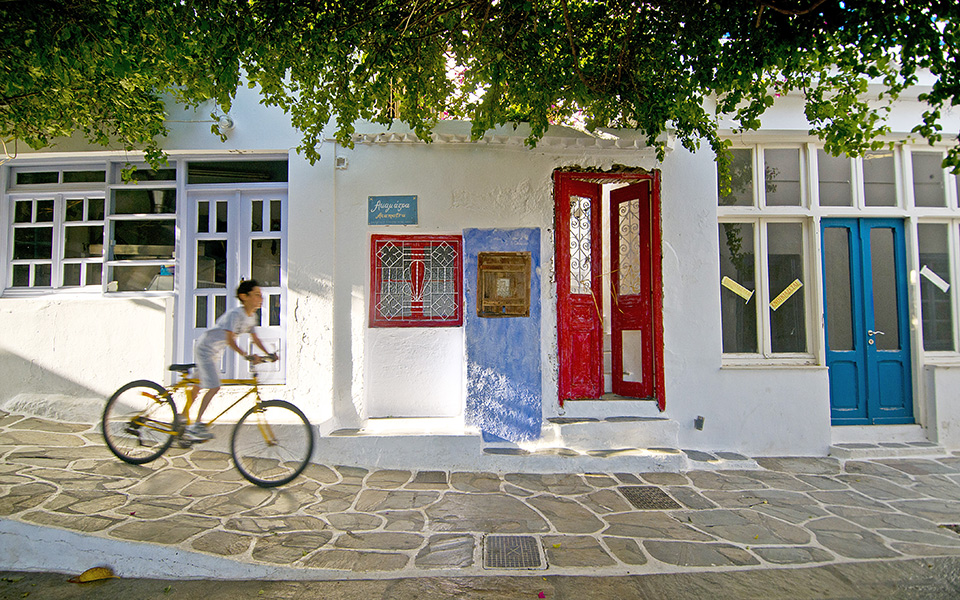
Carefree afternoon strolls through Mesaria, the Hora of Kythnos.
© Clairy Moustafellou
One of the country’s more low-profile islands, Kythnos is located in the western Cyclades, just a three-hour ferry trip from Piraeus port. It features five main villages, Merihas, serving as the island’s port, Hora, the main town, also known as Messaria, Dryopida, Loutra and Kanala, as well as some smaller villages. The autumn season suits this island well as it derives its beauty more from the interior than the coastline. The greenery between Messaria and Merihas, the scene of ceramic roof-topped houses at Dryopida and the medieval castle at Oria are examples of the island’s inland charm.
Emotional and impulsive, the people of Kythnos, once called Thermia, are lively and full of surprises. Don’t be caught off guard if asked to take command of a traditional wooden boat (trehadiri), as was the case during our first visit to the island, when we found ourselves steering a 12-meter vessel at Kavouroheri, Potamia and Aghios Sostis, three small bays close to Loutra. Also, don’t feel awkward if offered a sip of local wine from a hollowed-out bull horn. They were used as spoons in the old days here. Another of our unusual experiences on the island was when a wine-filled horn spoon was passed around one night during an outdoor celebration to the sound of lute (lauto) and tsabouna (traditional bagpipe) in Dryopida.
When the dancing begins, locals let visitors know that it is time to get up and move. Any claims by outsiders of not knowing the steps to traditional dances are immediately brushed off. Visitors really have no choice but to join the traditional syrtobalos dance. Locals can be insistent on such issues and may seem a touch harsh or mad but, deep down, they are hospitable people.
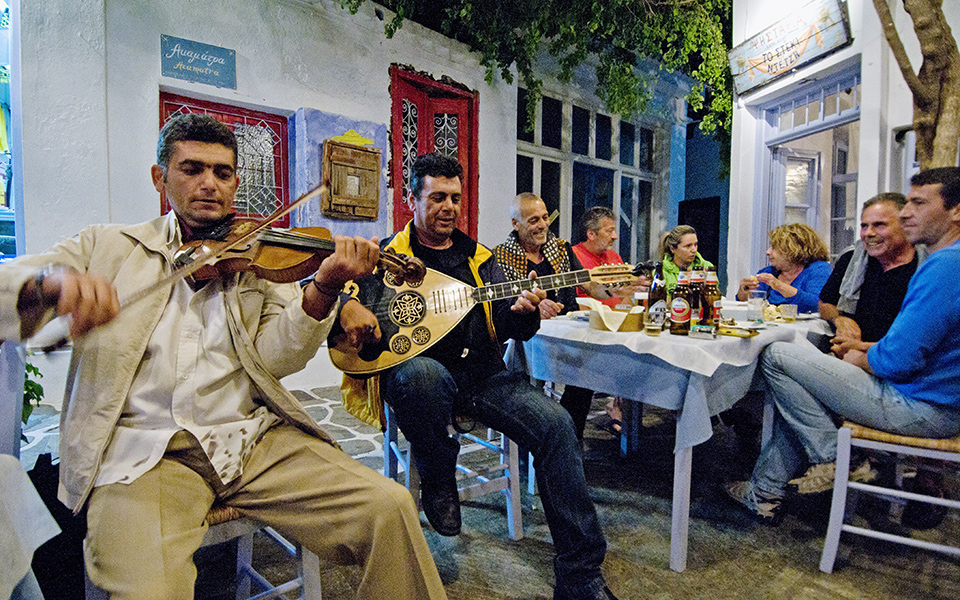
Entertainment with music and traditional dances at 'Steki tou Detzi,' one of the best-known restaurants on the island.
© Clairy Moustafellou
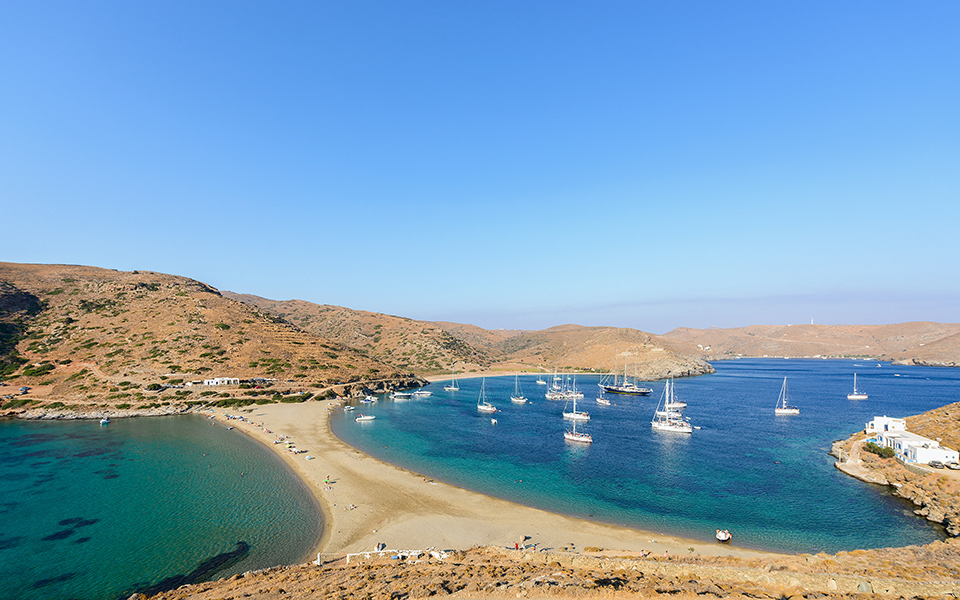
Famous Kolona, where a strip of sand creates two distinct beaches
© Shutterstock
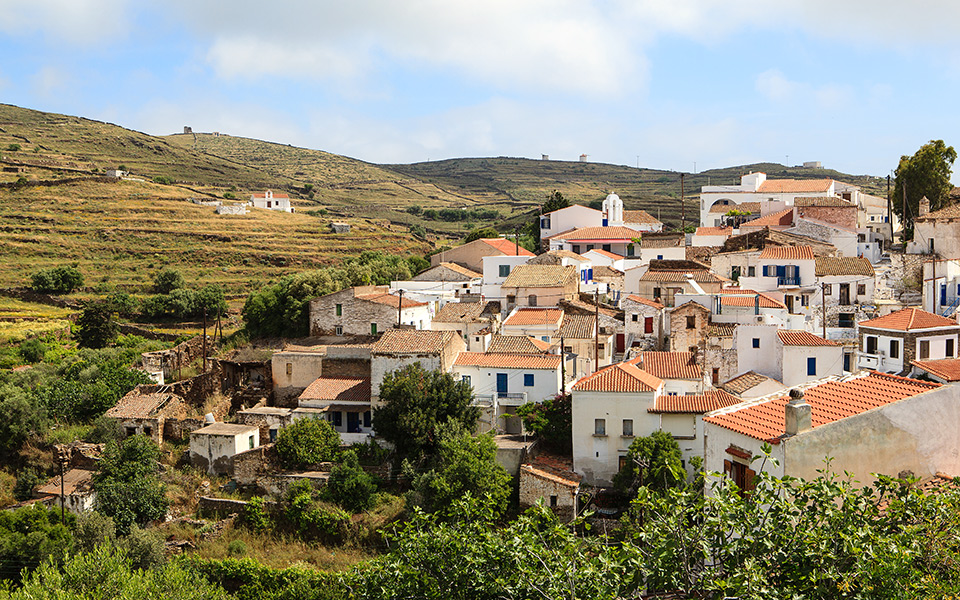
Dryopida, full of houses topped with red-tiled roofs, is one of the five main villages in Kythnos.
© Shutterstock
Kostas and Patestos, our hosts from the local council, offered us a very warm welcome and accompanied us around the entire island. We were taken to Katafyki, as the cave at Dryopida is known. It is located amid a shell of marble and slate and features multicolored stalactites. Locals used to celebrate Easter at the cave’s entrance.
We were taken to Merihas port, the art-decorated alleys of Messaria, located in the middle of the island, the Kanala settlement, renowned for its Panaghia (Virgin Mary) church and its miracle-working icon, as well as to Aghios Dimitrios, the island’s southernmost settlement. Once there, we sat at Milas restaurant and opted to try what turned out to be a delicious strapatsada (scrambled egg with tomato and cheese), arguable the island’s best.
We were taken on a tour of the Loutra village, featuring an old hotel facility, Xenia, and thermal springs, which, we were informed, were once frequented by King Otto, the first monarch of modern Greece, and his spouse, Amalia of Oldenburg.
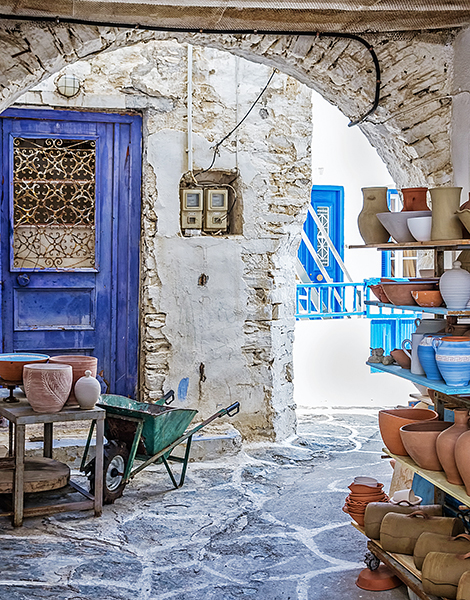
The cobblestone lanes and bare stone arches lend an old-fashioned charm to one of the relatively unexplored Cycladic islands.
© Shutterstock
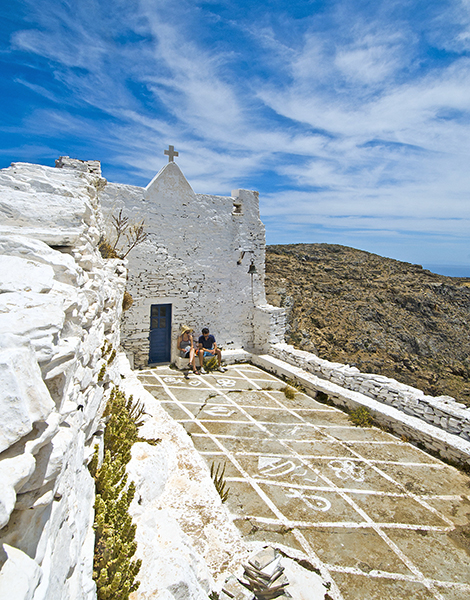
It is worth hiking to the Castle of Orias, once the medieval town of Kythnos.
© Clairy Moustafellou
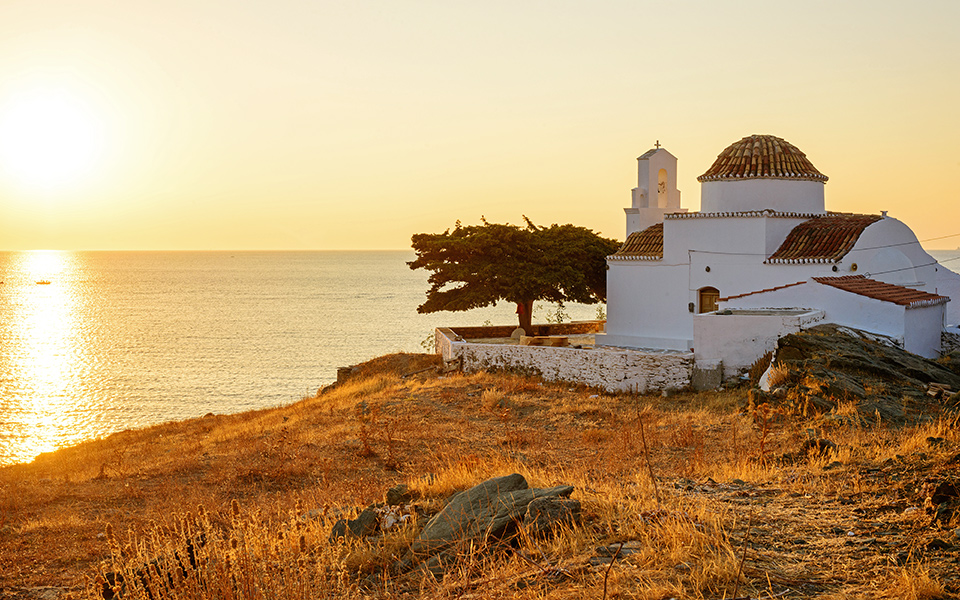
The church of Panaghia Flampouriani is located in Flampouria Bay, near Merihas.
© Shutterstock
From the thermal springs, we took the northbound road. After covering roughly 3.5 km of surfaced road and about 800 m along a dirt road, we stepped out of the car and continued walking along a stone path. Along our half-hour climb up to the Castle of Oria, the island’s medieval capital, we saw rich caper shrubs, sheep dozing in the crevices, and, at the top, the Keraleousa and Aghia Triada churches. This completed our first trek.
The second route we covered began at Zogaki. We passed through deep gorges to reach the Tourkala lakes – the imposing Megali (large) lake and the charming Mikri (small) lake – filled with emerald-green water. This location is at once wild and beautiful. Trekking with locals who know the area well is strongly advised.
The island’s culinary offerings are exceptional. On our brief trip, we tried the sfoungata (cheese croquettes), tarahto (scrambled eggs with tomato), tyropitaria (cheese pies), dried olives and, of course, souma (distilled spirit). The sweet-toothed members of our group were drawn to the Tratamento confectionary workshop and store in Messaria, whose products included beetroot sweet preserve, verbena (louiza) liqueur and amygdaloto (almond-based biscuits).
Discover hidden beaches, authentic tavernas, ancient...
Discover festivals, beaches, food, and hidden...
The attention of the global fishing...